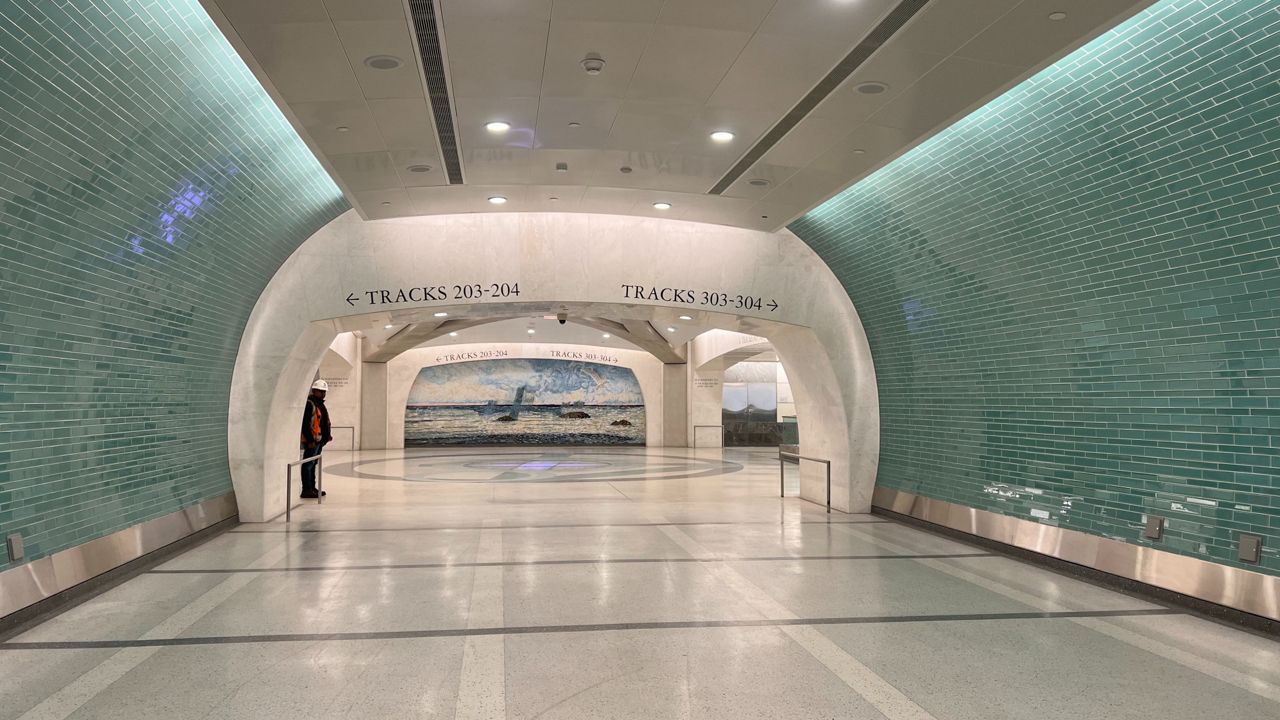An ongoing issue with an exhaust fan is still preventing the new, and otherwise completed, Grand Central Madison station for the Long Island Rail Road from opening, MTA Chairman and CEO Janno Lieber said Wednesday.
Lieber had planned to open the station to commuters before the end of 2022, before saying in December that the exhaust issue was forcing them to pause those plans.
“I’m not putting a date on it, but we’re making progress,” Lieber told reporters following an unrelated press conference. “It’s as if you had a walkthrough of a house that was done, and you can smell the new house and you can smell the new paint, and they told you there’s still a village code inspection that needs to take place.”
The MTA has pointed to the fan problems for nearly a month as the source of delays on the nearly $12 billion project. On Wednesday, Lieber rejected the suggestion that staffing shortages were to blame.
The station, part of the greater East Side Access project, is meant to give LIRR commuters direct access to MetroNorth commuter rails and the subway lines that pass under Grand Central Station. The MTA estimates that just under half of commuters coming into the city via LIRR have to double-back from its terminus at Penn Station to reach destinations on Manhattan’s east side.
The project was originally scheduled to be completed in 2011, and has seen its cost balloon by billions of dollars since then. Yet it could still open in January, Lieber said.
The issue now, Lieber said, centers on air being pushed down from Grand Central Terminal — under which Grand Central Madison has been constructed, 17 stories below ground — that is interfering with a single exhaust fan for the lower station meant to quickly extract smoke in the event of a fire or other emergency.
The fan, in safety tests, has not yet satisfied code requirements. Lieber said that engineers for the project could be to blame, if they did not adequately take into account the air movement from the upper rail station.
Lieber said he did not “anticipate” any additional spending needed for the issues, and that insurance payouts from any engineers at fault could cover the costs — though the authority was still determining how to mechanically fix the issue.
“I’m not paying for extra work that is necessitated because someone, however well-intentioned, didn’t design something perfectly,” Lieber said.
Lieber added that the weekslong delay caused by the fan was an improvement over previous setbacks, which pushed the project back by years.
“This is a sea change we accomplished by saying we’re not pushing it out by years and decades anymore,” he said.
